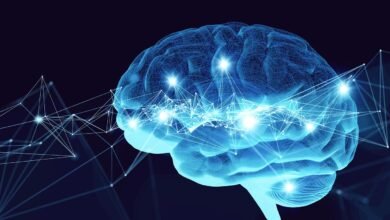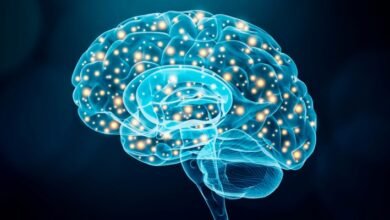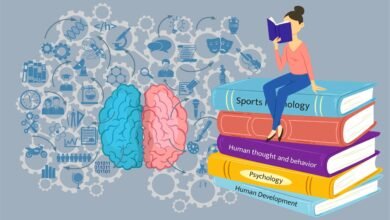Understanding Human Behavior: A Psychological Perspective

Understanding Human behavior is a fascinating and intricate subject that has captivated psychologists for centuries. It’s a complex interplay of genetics, environment, and internal processes. This article delves into the various facets of understanding human behavior from a psychological perspective, unraveling the mysteries behind our actions.
The Basics of Human Behavior
At its core, human behavior refers to the way individuals respond to stimuli in their environment. It is a dynamic and multifaceted phenomenon influenced by a myriad of factors. Genetics and environment play pivotal roles in shaping behavior, creating a unique blend that distinguishes one individual from another.
Psychological Perspectives
Psychologists employ diverse frameworks to comprehend human behavior. The behavioral perspective focuses on observable actions, the cognitive perspective delves into mental processes, and the psychoanalytic perspective explores the subconscious mind. Each perspective offers a unique lens through which human behavior can be analyzed.
Factors Influencing Behavior
The nature vs. nurture debate takes center stage when considering factors that influence behavior. While genetics lay the foundation, environmental and societal influences mold behavior throughout one’s life. Cultural norms also contribute significantly, shaping behavioral patterns in different societies.
The Mind-Body Connection
The intricate relationship between the mind and body cannot be overstated. Psychosomatic effects, where mental processes influence physical health, highlight the profound impact of psychological factors on overall well-being. Understanding this connection provides insights into various behavioral patterns.

Understanding How the Mind and Body Interact:
The mind and body are not isolated entities; they constantly communicate and influence each other. Consider the physical sensations experienced during moments of stress or excitement—racing heartbeats, tense muscles, or the soothing effect of a deep breath. These physical responses are direct manifestations of the mind-body connection, showcasing the profound influence of our mental states on our physiological reactions.
Psychosomatic Effects on Behavior:
Psychosomatic effects highlight the undeniable link between psychological factors and physical health. Stress, for example, can manifest as headaches, digestive issues, or even contribute to chronic conditions. Conversely, adopting a positive mindset and managing stress effectively can contribute to overall well-being and improved physical health. Understanding these psychosomatic effects provides a holistic approach to healthcare, recognizing the need to address both mental and physical aspects for optimal wellness.
Impact on Behavioral Patterns:
The mind-body connection extends its influence to behavioral patterns. Our mental states, emotions, and even our belief systems can shape how we act and react in different situations. For instance, someone with a positive outlook might approach challenges with resilience, while persistent negative thoughts could lead to avoidance or self-sabotage. Exploring these connections allows individuals to gain insight into their behavioral tendencies and work towards fostering healthier thought patterns.
Mind-Body Practices:
Recognizing the significance of the mind-body connection has given rise to various mind-body practices aimed at promoting holistic well-being. Practices like yoga, meditation, and mindfulness emphasize the integration of mental and physical elements, fostering a harmonious relationship between the mind and body. These practices not only contribute to stress reduction but also promote better physical health, illustrating the inseparable nature of mental and physical well-being.
Holistic Healthcare Approach:
In the realm of healthcare, acknowledging the mind-body connection has led to a shift towards holistic approaches. Integrative medicine recognizes that treating ailments requires addressing not only the physical symptoms but also the underlying psychological factors. This approach considers the patient as a whole, emphasizing the importance of mental and emotional well-being in the overall healing process.
Embracing a Balanced Lifestyle:
Understanding the mind-body connection invites individuals to adopt a balanced lifestyle that nurtures both mental and physical health. This includes practices such as regular exercise, maintaining a nutritious diet, and engaging in activities that promote mental well-being. By consciously cultivating a positive mind-body connection, individuals can enhance their overall quality of life and resilience in the face of life’s challenges.
In essence, the mind-body connection underscores the inseparability of our mental and physical experiences. By appreciating this intricate relationship, individuals can make informed choices that contribute to a healthier, more balanced life. The ongoing exploration of the mind-body connection not only enriches our understanding of human behavior but also opens doors to innovative approaches for promoting holistic well-being.
Emotions and Behavior
Emotions are powerful drivers of behavior, guiding decision-making and influencing interactions. Delving into the complex web of human emotions unveils the underlying motivations behind actions, offering a deeper understanding of why individuals behave the way they do.
Abnormal Behavior
Recognizing and understanding abnormal psychological conditions is crucial for fostering mental health awareness. This section explores various disorders, emphasizing the importance of empathy and support for individuals facing mental health challenges.
Developmental Psychology
Behavior evolves throughout the lifespan, and developmental psychology provides a lens through which to examine these changes. From childhood to old age, understanding the different stages of development enhances our comprehension of human behavior.
Social Psychology
Humans are inherently social beings, and their behavior in group settings is a fascinating aspect of psychological study. Social psychology explores how individuals interact in various social contexts, shedding light on group dynamics and social influence.
Applications in Everyday Life
The insights garnered from psychological studies find practical applications in everyday life. From improving communication skills to enhancing relationships, understanding human behavior empowers individuals to navigate personal and professional challenges more effectively.
Challenges in Studying Human Behavior
Ethical considerations in psychological research are paramount, and this section explores the ethical challenges inherent in studying human behavior. Additionally, it delves into the limitations of predicting and modifying behavior, acknowledging the complexity of the subject.
Future Trends in Psychology
As technology advances, so does the field of psychology. This section explores emerging areas of research, including the use of AI and virtual reality in psychological studies. The evolving landscape of psychology offers exciting possibilities for future exploration.

Emerging Areas of Research:
The future of psychology holds promise in uncharted territories. Emerging areas of research delve into the intersection of psychology with fields like neuroscience, artificial intelligence (AI), and even quantum psychology. Neuro-psychological studies aim to unravel the intricate workings of the brain, providing unprecedented insights into the neural mechanisms underlying behavior. Meanwhile, the integration of AI into psychological research opens avenues for more extensive data analysis and predictive modeling, offering new dimensions to our understanding of human cognition and emotion.
Technological Advancements:
Technology is revolutionizing the way psychologists conduct research and provide interventions. Virtual reality (VR) is increasingly becoming a tool for immersive therapeutic experiences, allowing individuals to confront and overcome various challenges in a controlled, virtual environment. Wearable devices equipped with biosensors offer real-time data on physiological and psychological states, providing researchers with invaluable information for studying behavior and mental health. The future promises even more sophisticated technologies that will enhance the precision and effectiveness of psychological interventions.
Exploration of Positive Psychology:
Positive psychology, focusing on human strengths and well-being, is gaining prominence. The future sees a continued shift toward exploring how positive emotions, character strengths, and meaningful experiences contribute to a fulfilling life. Researchers are delving into interventions that promote positive mental health, fostering resilience, gratitude, and mindfulness. This trend reflects a broader cultural shift towards holistic well-being and the recognition that psychology should not only address pathology but also enhance human flourishing.
Cross-Cultural Psychology:
In an increasingly interconnected world, cross-cultural psychology is gaining significance. Future research in this area aims to unravel the impact of cultural diversity on human behavior, cognition, and emotions. Understanding how cultural factors shape psychological processes will be crucial for creating interventions that are culturally sensitive and effective across diverse populations.
Ethics and Technology Integration:
As technology becomes more ingrained in psychological research and practice, ethical considerations take center stage. Future trends in psychology involve a heightened focus on ethical guidelines for using technology, ensuring the responsible and transparent use of AI, virtual reality, and other technological advancements. The ethical implications of data privacy, informed consent, and the potential biases in algorithms demand careful scrutiny as psychologists navigate the digital landscape.
Personalized and Precision Psychology:
The future of psychology envisions a move towards personalized and precision approaches to mental health. Tailoring interventions based on individual characteristics, genetic predispositions, and unique life experiences allows for more targeted and effective treatments. Advances in genetic research and personalized medicine may contribute to the development of interventions customized to an individual’s specific psychological profile.
Holistic Approaches to Mental Health:
There is a growing recognition of the importance of holistic approaches to mental health. Future trends in psychology involve integrating physical health, nutrition, and lifestyle factors into psychological interventions. The mind-body connection becomes a focal point for promoting comprehensive well-being, emphasizing the interplay between mental and physical health.
In conclusion, the future of psychology is an exciting frontier marked by innovation, interdisciplinary collaboration, and a deeper understanding of the human psyche. As technology continues to advance, and societal perspectives on mental health evolve, psychologists are poised to explore new realms, ultimately contributing to the well-being of individuals and societies worldwide. The dynamic nature of psychology ensures that the journey of exploration and discovery is far from over, with each step forward revealing new possibilities for the future of this captivating field.
Read More: The Psyche Unveiled: A Journey into Psychology
Case Studies
Real-life examples bring psychological theories to life. Case studies illustrate how theoretical concepts manifest in practical situations, providing tangible examples of human behavior in different contexts.
Conclusion (Understanding Human Behavior)
In conclusion, understanding human behavior is a continual journey marked by complexity and nuance. It requires a holistic approach that considers the interplay of genetic, environmental, and psychological factors. By unraveling the mysteries behind our actions, we gain valuable insights that can enhance our relationships, communication, and overall well-being.
Read More: Mind Matters: An In-Depth Look at Psychology
FAQs
Is human behavior solely influenced by genetics?
Human behavior is a result of the interplay between genetics and environmental factors. While genetics provide a foundation, the environment significantly shapes behavior throughout life.
How can understanding human behavior improve relationships?
Understanding human behavior enhances empathy and communication skills, fostering healthier and more fulfilling relationships.
Are there cultural differences in human behavior?
Yes, cultural norms play a crucial role in shaping behavioral patterns. Different societies may exhibit distinct behaviors influenced by their cultural context.
Can abnormal behavior be effectively treated?
Many mental health conditions are treatable with the right interventions, including therapy, medication, and support systems.
What are the future trends in psychological research?
The future of psychology involves advancements in technology, including the use of AI and virtual reality, offering new avenues for exploration and understanding.











